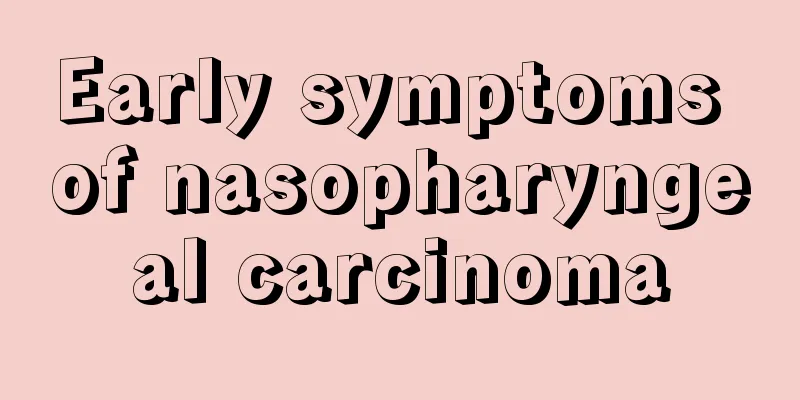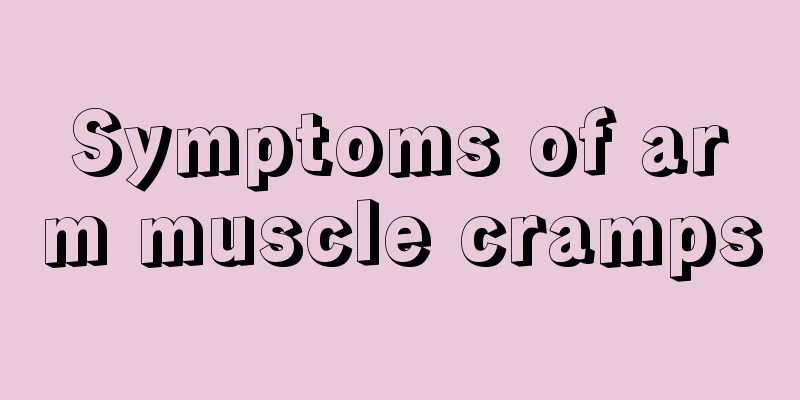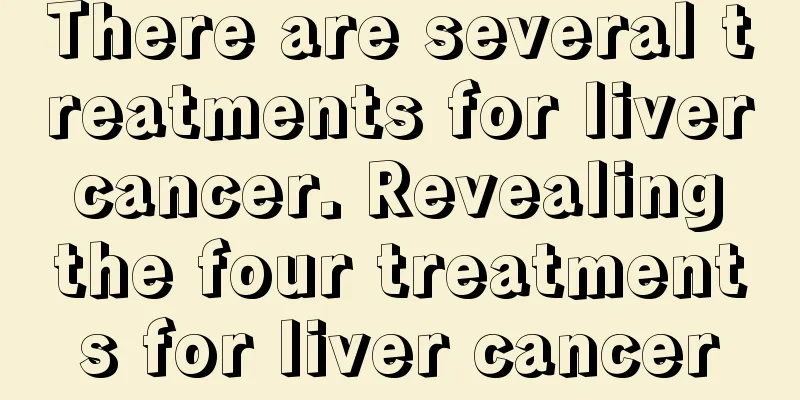Early symptoms of nasopharyngeal carcinoma

|
Nasopharyngeal carcinoma is a malignant tumor that occurs on the top and side walls of the nasopharynx. Early symptoms usually include blood in the nasal discharge, nasal congestion, tinnitus, swollen lymph nodes in the neck, headaches, etc. It is recommended that patients seek medical attention in a timely manner and receive appropriate treatment measures under the guidance of a doctor depending on the cause. The details are as follows: 1. Blood in the nasal discharge: This is one of the more obvious early symptoms of nasopharyngeal carcinoma. It often occurs after getting up in the morning. The amount of blood is not much and it is easy to be ignored by patients. It is recommended to keep the nasal cavity moist and avoid an overly dry environment. Avoid blowing or picking your nose hard to reduce irritation in the nasal cavity. You can use some hemostatic drugs as prescribed by the doctor, such as Yunnan Baiyao Capsules, Ethamtril, etc. 2. Nasal congestion: Some nasopharyngeal cancer patients will experience unilateral nasal congestion. If the nasopharyngeal cancer is more serious, bilateral nasal congestion may occur. It is recommended to use a nasal irrigator to clean the nasal cavity and relieve nasal congestion symptoms. You can use vasoconstrictors or nasal sprays to relieve nasal congestion, such as ephedrine hydrochloride nasal drops, budesonide nasal spray, etc., as prescribed by your doctor. 3. Tinnitus: The early signs of nasopharyngeal cancer are blocked ears and tinnitus, which are usually caused by nasopharyngeal cancer blocking the Eustachian tube on the affected side. You can follow the doctor's advice to use some drugs that improve the microcirculation of the inner ear to relieve symptoms, such as ginkgo leaf tablets, citicoline sodium tablets, etc. 4. Swollen lymph nodes in the neck: Many nasopharyngeal cancer patients will find lumps when touching their necks, including swollen lymph nodes. These lumps are usually hard and have poor mobility. They are painless and can be easily ignored by patients. Local radiotherapy or chemotherapy is recommended to shrink the tumor and relieve symptoms. Anti-inflammatory drugs can be used as prescribed by the doctor to reduce the inflammatory response of swollen lymph nodes, such as amoxicillin capsules, cefradine capsules, etc. 5. Headache: This is a common symptom of nasopharyngeal carcinoma. Patients usually experience persistent headaches, mostly located at the temporal parietal region. You can take some nonsteroidal anti-inflammatory drugs such as ibuprofen and acetaminophen as prescribed by your doctor to relieve the symptoms. It is recommended to reduce the intake of spicy foods in daily diet, such as garlic, pepper, chili, etc. You can increase the intake of high-quality protein, such as beef, lean meat, eggs, etc. Strengthen exercise, improve immunity, have regular checkups, and seek medical attention in time if the condition worsens. |
<<: What is unexpected gallbladder cancer and what to do
>>: There are three places where laryngeal cancer hurts in the early stage
Recommend
What kind of pillow is better for the cervical spine?
Nowadays, many people usually work in front of th...
What is the structure of the radiocarpal joint?
The human wrist joint is a very complex connectio...
Spleen deficiency shortens life span by half. Check here to see if you have spleen deficiency
What we talk about most in summer is spleen defic...
How harmful are mixed tobacco and flue-cured tobacco?
In fact, mixed tobacco and flue-cured tobacco are...
For glioma problems, choose a regular hospital for treatment
When it comes to glioma, the first thing patients...
What is the normal white blood cell count for infants and young children?
There are many indicators for evaluating human bl...
My stomach hurts when I stand up
It is very common in daily life to have lower abd...
17 tips to prevent cervical cancer
Many people are afraid of the word "cancer&q...
How to prevent bladder cancer
How to prevent bladder cancer? Bladder cancer is ...
What are the causes of lung cancer
Lung cancer is a killer of our body, and it serio...
What should I do if water gets into my ears while swimming
In the hot summer, many people go swimming. Swimm...
Why does drinking wine make your mouth black
It is normal for your lips to turn black after dr...
What are the benefits of levator anus
I believe many of my friends are familiar with pe...
What causes bladder itching
Every night, many people will feel itching inside...
Swollen gums cause swollen jaw
Many people often suffer from getting inflamed, w...









